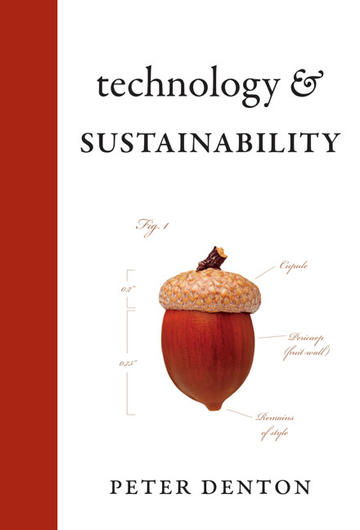About BC Books Online
BC Books Online was created for anyone interested in BC-published books, and with librarians especially in mind. We'd like to make it easy for library staff to learn about books from BC publishers - both new releases and backlist titles - so you can inform your patrons and keep your collections up to date.
Our site features print books and ebooks - both new releases and backlist titles - all of which are available to order through regular trade channels. Browse our subject categories to find books of interest or create and export lists by category to cross-reference with your library's current collection.
A quick tip: When reviewing the "Browse by Category" listings, please note that these are based on standardized BISAC Subject Codes supplied by the books' publishers. You will find additional selections, grouped by theme or region, in our "BC Reading Lists."
The developed world is increasingly obsessed with two things: electronic gadgets and our changing climate. We stand in open-mouthed awe at our technological achievements while dejectedly shrugging our shoulders at the state of the planet on which we live. Our choice is clear: we need to reimagine the way in which we engage with the technology we create.
Peter Denton's first RMB manifesto, Gift Ecology: Reimagining a Sustainable World, focused on interpersonal relationships as the foundation for a vibrant and ecologically sustainable society. In his second thought-provoking book in the series, the author challenges readers to use our cherished technologies in new ways. We need to think of our devices not merely as better rocks and sharper spears, but as profound extensions of our hearts and minds that we can use to change the world.
Technology is in our heads, not in our hands. If we don't like what our technologies are doing to the world and to ourselves, then we all have both the power and the responsibility to make better choices today than we did yesterday. Technology and Sustainability redefines our relationship with technology and offers ways in which we can use these tools to make the world a better place through enlightened and positive engagements. If systems of technology have multiplied individual choices into global problems, then it means those same systems can multiply better choices into the global solutions we need for a sustainable future.
These reflections on technology should stimulate your thinking about the crucial questions of our day.—Bill McKibben, founder of 350.org and author of Enough
Peter Denton has once again written a book that makes one think about not only what to do or how to do it, but more importantly, why to do it. Achieving sustainable society is more about our attitudes and our ethical orientations than even our actions. Peter makes the arguments for the ethics clear even for those of us from a technological background.—John R. Craynon, ARIES Project Director, Virginia Center for Coal and Energy Research, Virginia Tech.
This book is an empowering account of how our personal choices can help shape a better future for next generations.—Calestous Juma, Professor of the Practice of International Development and Director of the Science, Technology, and Globalization Project, Harvard Kennedy School
Technology is the most powerful agent alive today, but cannot make the ethical choices necessary to flourish. Denton exhorts us to understand and take hold of technology, so we human beings can consciously act ethically and thereby create the world we envision.—John R. Ehrenfeld, Executive Director of the International Society for Industrial Ecology; former Director of the MIT Program on Technology, Business, and Environment; and author of Sustainability by Design
Concerned for the future of your children? In Technology and Sustainability, Peter Denton explains why you should be and what can be done to avert a possible ecological catastrophe. In this perceptive book, the author elucidates the stark choices ahead of us: either we re-evaluate the word “progress” by re-thinking the technological, ethical and philosophical principles upon which modern society is based, or we are eventually doomed to collective suicide.—Roberto De Vogli, Associate Professor in Global Health at the University of Michigan (UM) and a Senior Lecturer in Social Epidemiology at University College London (UCL)



